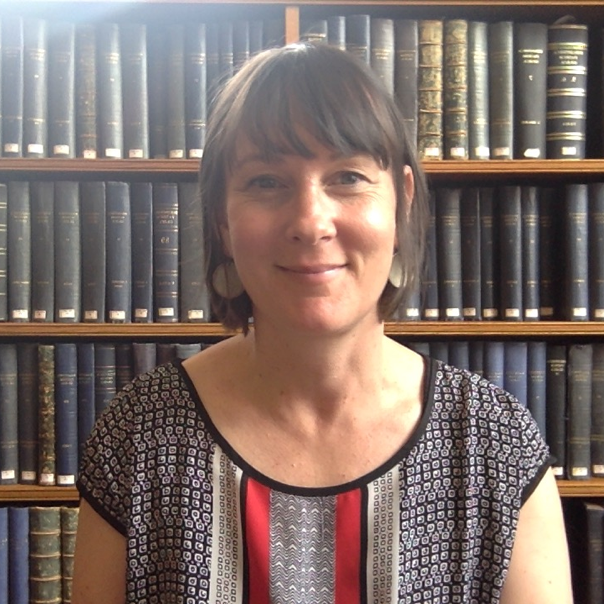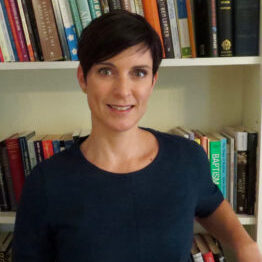Episode Transcript
[00:00:05] Speaker A: You're listening to by the well, electionary based podcast preachers recorded on the land of the Warunderi people.
Hello everyone, I'm Fran Barber.
[00:00:19] Speaker B: And I'm Sharon Hollis.
[00:00:20] Speaker A: Welcome, Sharon. Sharon's been a guest on by the well before. A co host. Sharon is a minister in the Uniting Church in Australia and the president of the Uniting Church in Australia at the moment. So thank you very much for coming back to join us by the well.
[00:00:34] Speaker B: Pleasure to be here, Fran. I'm looking forward to talking about the texts with you. Yeah.
[00:00:38] Speaker A: So this week we are here doing advent four, and Sharon and I are going to focus particularly on Luke 146 B to 55 and Luke 126 to 38. That was around the wrong way. The first reading in the Magnificat is in place of the psalm, and the gospel is Luke 126 to 38. And we are likely to have a brief foray into the second Samuel reading, which is two Samuel seven, one to eleven, and verse 16 and maybe into romans. But we'll just see how we travel along and let you know if we get there. So Sharon, let's start chronologically in these readings, as in, therefore with the gospel.
[00:01:28] Speaker B: Yes. Makes sense with these to do. Yes.
[00:01:30] Speaker A: Rather than the magnificent. First, let's talk about the visitation of Gabriel to Mary. So this week in Advent is one traditionally in recent times quite obviously devoted to Mary. And I can't remember the order of peace, love and joy, but I presume it's joy. Is it? I don't know. If this was live, we could ring in and get it. We could.
And this year, advent four is the day before Christmas day. So excitement is mounting, isn't it?
[00:02:02] Speaker B: It is. And a shout out to all the preachers who are turning advent four in the morning and turning around for Christmas Eve in the afternoon and evening. Yes. And when put on them. Yes.
[00:02:10] Speaker A: And when I was preparing for this, I thought, I wonder how many people will preach and maybe, or maybe they'll have a carol service.
Anyway, we're here to resource you in case you are preaching.
[00:02:20] Speaker B: Indeed.
[00:02:21] Speaker A: So, the visitation of Gabriel to Mary. Now, I think we'll deal with this thematically rather than with lots of textual points, won't we, Sharon? Especially given recent scholarship from women in particular who've critiqued traditional interpretations of this.
[00:02:45] Speaker B: I think that's right. I think it's good to just perhaps think about what the story is trying to convey and perhaps what some of the dangers are if we don't interpret it with a little bit of care and don't listen to some of those voices both in terms of the dangers, but also I think some of the feminist critique can also help us see some of the richness of the passage as well.
[00:03:12] Speaker A: And what are some of those feminist critiques in your reading that you've come across?
[00:03:17] Speaker B: Well, I think there's a couple and it's interesting because of course, feminist theology comes out of the broad stream of a liberationist perspective. And actually this reading is much loved by many early south american liberationists, was one of the key passages they would talk about in their group. So it's an interesting kind of juxtaposition, but I think there's, and it's, I think we have to read carefully. I mean, the critique is around the text, but I suspect also colored by nearly 2000 years of interpretation and representation of Mary. I mean, one of the most painted, represented, misrepresented women people in the biblical narrative. But I do think some of it is around whether Mary gives consent to the pregnancy. And I think that's probably a trickier thing in Matthew. So perhaps you can put that partly to one side. I think part of the critique of the Luke narrative comes out of a growing feminist feeling that Luke, on the face of it, looks like a friend to women. Like he has a lot of stories about women, but they're often told in ways that pit women against each other or have women always in the very supporting role to men. And that's one of the critiques here, that Luke kind of offers Mary this big role, but then she has to just fall away, as does John the Baptist in one sense too, that her role is all just leading up to Jesus and that she doesn't really get to play a full embodied human role in that. So I think that's one of them. There's some concern around the use of the word slave in this servant or slave of God. And it hearkens back particularly to the parallels more with the magnificent than the early bit of the passage, to the Hannah reading, where she uses the same word and Hannah is cast in a very similar role. Although Mary's not barren, Hannah is. But that reversal of having a child. But it's really just in aid of Samuel coming along. And Hannah just disappears very quickly from the narrative too. And we get masses of Samuel and the mother, who knows what she did, perhaps went away and raised dozens more children, having had one. We just don't know. And I think there's a bit of that sense that narratives like Mary's that are echoed in some of the Old Testament narratives have that function and are a bit supporting role. Supporting role, yes.
[00:06:00] Speaker A: If I could interject there and mention something I have on the podcast before, I'm reflecting as I listen to you on Ben Meyer's extremely pithy sort of, yes, a flippant summary of the Bible, but profoundly true that it is a book of miraculous births and that actually the blessing of God and the revelation of God comes through miraculous births, barrenness or profound youth and so on, repeatedly.
And, yeah, we could say that that's a supporting role, but actually it's not. Perhaps it's more that we have talked about it in those terms or treated it in those terms, that in fact, there would be no story without women.
[00:06:48] Speaker B: I think that's true. And, I mean, it's interesting. The miraculous births are all men, and I think that's part of being born. It's not. The miraculous birth of a woman leads to the liberation of Israel, and that really reflects to the broader the patriarchal society in which it was written as well. So we're wrestling with that as well.
What would happen if Miriam was the star of the story, not moses? She plays the supporting role as the sort of mother, you know, rescues him and gets a song, but Moses gets to do the rest of it with a little bit of help from Aaron, and Miriam just disappears from the story. So it's that sort of thing, I think. I mean, Luke does have Mary, interestingly, again, back in the story at the very beginning of acts, where she's part of the group that are praying for the coming of the Holy Spirit. So in Luke's mind, even if he doesn't talk about it, she's clearly engaged in the whole Jesus movement, including the post resurrection movement. So that says to me she must have played a part and must have been significant enough in the early church to mention her place at the birth of the church. So I think for me, we're wrestling.
[00:08:11] Speaker A: With.
[00:08:14] Speaker B: How do we peel back some of the patriarchy to see who Mary is and what she's got to say to the contemporary church.
[00:08:25] Speaker A: Yeah. One of the things I read this week, which may not surprise those who have listened to advent one and two episodes, is Sam Wells latest book on how to preach. And he's got a very profound sermon called my body given for you, I think, or something like that. This is my body.
And he talks about it being a sermon that needs to be read with a very gentle tone because we all have such ambivalent takes on our own bodies. The culture has made us feel inadequate. The tradition has made us fearful of our bodies, or it's neglected our bodies because they're just a carriage for something that's more important and spiritual. And in this sermon, he does address the sort obliquely, perhaps you could say, but no, he does address those readings that Mary is acted upon, and that in her we see the violence, potentially, of the powerful on the vulnerable, on their physical bodies. And often it's women by men. Usually it's women by men. And he takes account of these things, but then he names them very clearly, and then he wonders, the way Mary appears in the New Testament is really as Israel, and that where Israel has broken the covenant and failed it. And in here particularly, we see Mary taking that covenant on in her body and herself, and learning, in Sam Wells's terms, learning that her body is for. What's the word he uses a carriage of the Holy Spirit, and that's what her body is, and the blessing of God in the world.
And we learn that's what we're here to do, too. The blessing be carriages of the Holy Spirit, which you could stop there and go, well, that's all very interesting, but the way he eloquently describes how that might be in our day to day interactions, in our mighty political acts, somehow to me, that freeze the way he deals with it, as I say, takes account of these political and historical feminist critiques, but leaves Mary central and crucial and profound in our discovery of our own discipleship. Here.
[00:11:01] Speaker B: I haven't read the sermon, but that phrase, courage of the Holy Spirit is an arresting one and mirrors in a mean part of the problem with Mary is what builds up around, like, it's really hard just to encounter her in the Bible narrative these days. So, you know, that massive debate that went on in the early centuries about how to name what her title was, and the orthodox fall on theotolkos, the God bearer, the one who bears God, which the carriage of the Holy Spirit is perhaps a more poetic way of thinking about mean, I do think, for all the problems that are there in the text, and they are bound to be there because of the very context in which it's being written, the notion that salvation enters the world through the body of a woman is a powerful one, and one that then does force us to really wrestle with, well, what does if we don't almost deify her, but really accept that she leave her, in a sense, in a good way, as a human being, well, then what is that model for us? What does it mean to be a carriage of the Holy Spirit, a bearer of God? I think that is a pressing question. And in a way, if you've got the time in a very busy day on this Sunday to actually read both the Annunciation and the know, the magnificat almost answers that question, or offers one way of answering that question, what does it mean for us? What does it mean for Mary? How does she understand? What's her self understanding of being a carriage of the Holy Spirit?
[00:12:52] Speaker A: Before we move more specifically on to that passage, I did want to mention a take for a sermon that I had in my preparation, which was the angel leaping out at me from the text for this year. For some reason, I think we just. Well, I certainly just read over, oh, well, an angel came and I decided I'll look up a dictionary of biblical imagery around angels. And it went for three solid pages and listed all the many Old Testament Hebrew Bible references to angels. And really I just thought, especially if you could tie it into somehow, that very pithy Romans reading this week about the revelation of the mystery.
The revelation of the mystery is a funny term, but that these angels are agents of God and are not cute baby things that are endearing, that actually, as we see in the text, anytime they appear, do not be afraid, is the first thing people are told when an angel appears. And that in revelation and in a couple of places, they're actually agents of know. So there's real grit here.
Fleming Rutledge also talks about in a sermon in her book on advent. There's a depiction of angels carved into the door at Kern Cathedral in Germany, and the shepherds are recoiling in horror at their appearance. So I thought if you've been through Christmas eleven times or more and you've got a community who would respond well to this, some sort of an exegetical sermon coming out of what angels are. And one little tidbit that I learned that's really interested me was the el in the names Gabriel and Michael, when they are named, is Hebrew for God. So I don't.
That's just do with that what you will or not.
[00:14:53] Speaker B: There's the bubble of every small child dressing up as angel in the might.
[00:14:57] Speaker A: That, like I said, you would have to choose wisely, depending on your community, if there are any dressed up angels, perhaps don't.
[00:15:03] Speaker B: Someone did comment in relation to Mary that one of the problems we've done is that in nativity place, Mary is often the least voiced character, and people choose to be angels or shepherds because they get more action. So, I mean, I think that's an interesting thing. And to actually really wrestle with the angelic present like, what does the announcement of God mean in your life?
Why do they constantly need to say, don't be afraid?
[00:15:30] Speaker A: Yeah, I think that that would be a really poignant sermon. Focus. Shall we move to the magnificat, which is Luke 146 b to 55?
So, Sharon, you were just saying that. Yeah. This passage really does start flesh out, in many ways what being a carriage of the Holy Spirit might be.
It's a reversal of the worldly order of dominance and violence and superiority and success, and that Mary agrees to take this.
[00:16:16] Speaker B: Mean. Before we get to the kind of content that she offers for the reversal. I think even her being the Theotokos is a.
You know, she's a woman, like, of no substance in the scheme of the empire, of, you know, in a small village in one of the poorer parts of the empire, living life.
[00:16:40] Speaker A: She's 14 or 15.
[00:16:42] Speaker B: Yes. Which is, I think, I suspect, like a common age.
I think when my children are 14, goodness me.
[00:16:47] Speaker A: Yeah. I have a 14 year old daughter.
[00:16:53] Speaker B: I'm sure they weren't. It was different in that sense.
[00:16:56] Speaker A: But.
[00:16:59] Speaker B: The choosing of her is a sign almost of this.
There are some. There. There was a sort of rumor around Mary for quite a while that she actually was bearing an illegitimate child.
And some of the feminist scholars say in some ways, that actually points to a reversal as well. Like, if the spirit can work through a woman in a small town who is bearing a child outside the bounds of normal convention, whether by, however she comes to be having a child outside the bounds of normal convention, that's a reversal in itself.
Her story is the story of the magnificat in some ways. And I think, in a way, that gives her back some agency in the story, too. So it's not just that she gets to sing this song of what God is doing almost abstractly. I mean, powerful for the people affected by the reversal, but that her body, her life.
[00:18:04] Speaker A: Well, much as Christ's. Yes. Incarnated.
[00:18:07] Speaker B: Yeah. Is the sort of inflreshment of. Or the first witness to the reversal that she goes on to sing about.
[00:18:18] Speaker A: That's put in my mind, at the risk of sounding a bit, making all these different connections. But the second Samuel reading about Nathan coming to David, and David's deciding that the Lord needs his own house, because David's got his house, and this misunderstanding that we know what's good for God and that we've got all this agency here. And in that passage, I think Fleming Rutledge points out that actually, there's half the verses. God is the actor, and David might be a great king and so on, but he has no bearing on the future.
He cannot do anything about the future. Only God can do that. But not only that about that passage, but also that David's life is in disarray. I mean, his family is imploding, his son died trying to kill him. David himself is weak as anything at the end and can't even keep himself warm and so on. And the point being that we can do naught without God. And that's a total reversal in our own minds. We think we can control a whole lot, everything, which is just rubbish. Yes.
So there's something about advent, the focus in advent not being on us, the pressure to wait and prepare, important. But actually why don't really, let's spend the time thinking about how it's not about us doing all that, it's about God acting in our lives and being open to that and being a courage. Yes, it is hard in this world now. Like there's wars everywhere, there's profound suffering.
It really is.
I mean, it's ever thus at one level. It is ever thus. We are dreadful to each other, guaranteedly. What is it to preach this hope?
[00:20:18] Speaker B: It does feel, for me, at least this year, this feels incredibly poignant.
Where a war is at one level shouldn't matter. But there is something about the very land in which this song is sung, being blown up on our television screens alongside all the things we don't notice, all the famine and war we don't notice.
[00:20:45] Speaker A: And the Ukraine, that still goes on.
[00:20:47] Speaker B: Yes, the Ukraine. I think of people in West Papua that whom I've met and heard of in their quest for independence, all those places.
And I was listening a couple of weeks ago to a segment on radio national called the year that made me. And there was a northern irish Methodist minister called Gary somebody.
We'll look it up, look his name up, put it in the show notes. But he's been involved in the peace process for the 25 years it's been going. And before that, when he was in pastoral ministry, all his congregations were very close to the lines that divide Catholic and Protestant. And since then he's developed a leadership institute to train young northern irish people in the ways of peace and now does that with Palestinians and Israelis, together with Northern Irish. So trying to talk to each other. And he told a story about a young palestinian at a training session he was doing and a young palestinian woman coming and saying to him, this is basically rubbish. Our conflict is so intractable. There's nothing you can teach me. And he said to her, can you just six weeks, I just want you to see what happens. He said, and if at the end of it you come and say to me, maybe, just maybe, I'll be happy. And he said, at the end of the six weeks, she came and put her arms around him and said, maybe, just maybe. And he said, I'm about the oxygen of hope. And it stayed with me since I've heard that. And I feel like we're at a point where the magnificent is less a full throttled cry this year and more a kind of maybe, just maybe, if we trust God, if we're willing, like Mary, to give our bodies to the hope of God, the oxygen of hope might survive in the world. Maybe, just maybe, feels audacious at the, yeah, yeah.
[00:22:47] Speaker A: That's a very profound phrase, isn't it?
And thinking about Mary facing know fearful, she's told not to be afraid, but there's something about her embodying paradoxically a fearless fear, which I think also does capture what that man Gary and the palestinian woman are getting at. That that's what we're called into, that it's not easy, it is terrifying in different degrees in different parts of the world or parts of our lives, and.
[00:23:32] Speaker B: That we need practices that help us breathe the oxygen of hope rather than the oxygen of despair.
It's not all choice, but part of it is.
Do we open ourselves to this song?
[00:23:53] Speaker A: The word humility, we use a lot in christian conversation. Well, what does that look like? What is humility in the face of this violence?
Well, far be it from us to say what that is in the midst of the holy land now.
[00:24:14] Speaker B: I mean, palestinian Christians are saying, please don't forget about us and that that would be something for them. And maybe that's a way we breathe the oxygen of hope and say, maybe, just maybe, we pray with you, we hear your cry.
I mean, once you do that, you then have to become an advocate for them as well. But for them, part of what will make the maybe possible is that we don't forget them. And that maybe that's part of it. The reversal is simply in the face of a war machine and a propaganda machine that tries to make us forget them. We remember them this advent.
We remember all the ones who are looking for this kind of reversal, who long for this reversal.
[00:25:02] Speaker A: Remembering is actually core to the faith so much. If you notice that phrase and many passages through the lectionary year, it's about remember God did this. Remember this is the God who released you from slavery in Egypt. This is remember. Remember?
Yeah.
[00:25:22] Speaker B: And one of the other things I read was about a group of Latin Americans. As I said to you earlier, this passage is quite core to the early liberation movement. And lots of them would sit around in South America in the. When that movement was getting going, and they would read this and they would say, we feel seen in this passage. This is what we are working for. This is what we are longing for. And I do think we're so comfortable that it's hard sometimes to hear the reversals. Like, the reversals are actually, for us, quite challenging.
[00:25:59] Speaker A: Well, we're on the wrong side of it.
[00:26:00] Speaker B: Yes. We have to enter into it in a different way and ask ourselves, well, if we do want to breathe the oxygen of hope, what might we need to give up?
[00:26:08] Speaker A: Well, and that's the humility thing of getting it.
[00:26:11] Speaker B: Yeah.
[00:26:11] Speaker A: What do we have to give up? Yeah. I think we're coming towards the close of our conversation time. Sharon, are there any final thoughts that you have about this week and people leading worship?
[00:26:24] Speaker B: I think if you're one of the brave people that's chosen to Mark Advent four, I hope that people do mark it as a discreet kind of Sunday. I mean, I know there's a lot of pressure and no shade on people that don't. But there's a lot in this, and it deserves some attention, and that's the risk of. I mean, it's a blessing and one we don't have to trot out for another day in the very busy Easter, very busy Christmas season. But Mary does deserve attention and deserves her full humanity. And I think that's been one of the blessings of the 20th century. Rediscovery of Mary is that we're attending to much less to the myth around her and much more to her humanity. And I think that's where I'd try and put my attention and her voice.
[00:27:14] Speaker A: And her central role. Thank you, Sharon.
[00:27:18] Speaker B: Pleasure. Thanks for having me.
[00:27:22] Speaker A: By.
[00:27:23] Speaker B: The well is brought to you by pilgrim Theological College and the uniting church in Australia. It's produced by Adrian Jackson. Thanks for listening.
Our.





